Pakistan’s complicated relationship with body positivity
April 29, 2021
Cover photo credit: Freepik
By: Sarah Munir
Suggested reading time: 7 mins
Consider yourself lucky if you missed the latest botched attempt by Pakistani media at body positivity or inclusivity in the form of Express Entertainment’s drama “Oye Motti.” As the promo reveals, the story revolves around protagonist Aalia – whose body size appears to be everyone’s business including her beloved partner-to-be Nauman. In a strange plot twist, Nauman lays down a condition for Aalia to reduce her weight by half if she wants to tie the coveted marital knot.
Head meet wall
As tone-deaf as this plot twist sounds, according to a Dawn News report, the show “has been created to highlight the deeply-rooted culture of body shaming in our society.” The show’s lead Kanwal Aftab also said in an Instagram post that she worked very hard on this project to bring attention to the desi culture of body shaming.
Sounds like the opposite of what it seems, right?
Why are we so bad at representing different-sized bodies?
Despite women’s bodies and sizes being the center of unsolicited policing and politics in Pakistan, we have somehow not been able to find the right vocabulary or understanding of what it means to embrace bodies that do not meet societal ideals. Not only have we failed to center bodies that fall outside of the tall, thin, fair construct in our fashion and mainstream media, we also don’t have the right language to talk about people’s weight without reducing them to it.
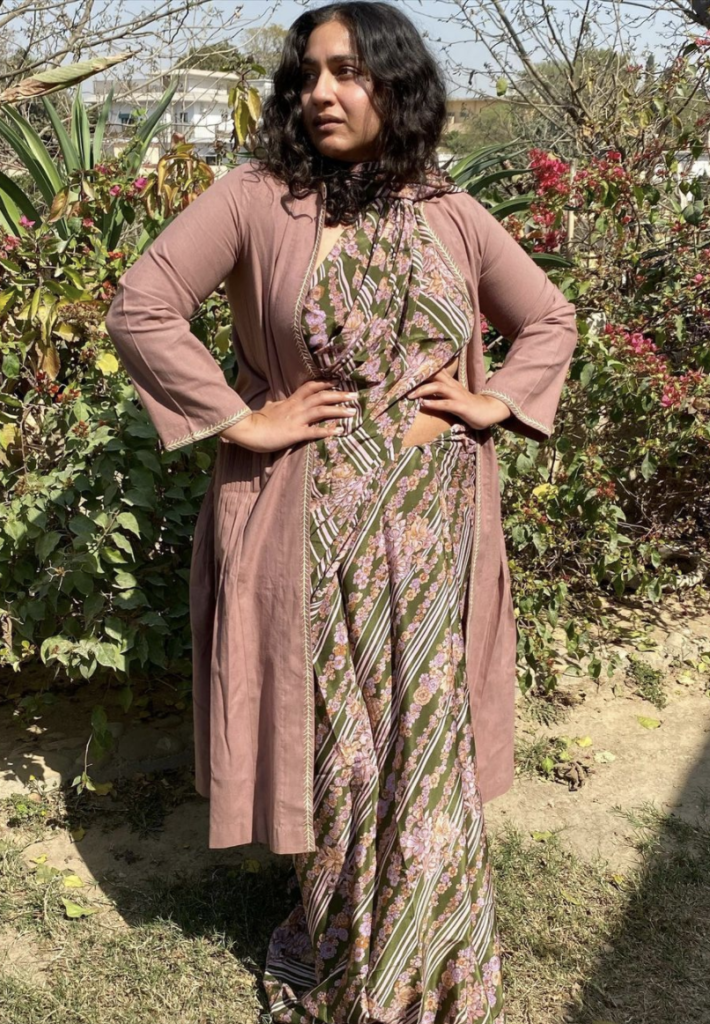
According to multimedia journalist and comedian Sabah Bano Malik, these attitudes are rooted in conformity – being happy with anything that falls outside of what is considered appropriate or attractive is almost seen as “threatening” in our society, she says. Malik also feels the over-sexualization of bodies from a young age deems it almost vulgar for women to be heavier and be ok with it – especially if they carry that weight around their breasts and hips.
Digs at being overweight in day-to-day conversations is commonplace and portraying overweight people as sloppy, simple-minded sidekicks by the media has turned being a different size into an ailment that must be avoided at all costs. Not to mention entire corporations that swoop in and sell the dream of being thin with weight-loss supplements, fad diets and fat-free everything.
Have fun in whatever body you are in
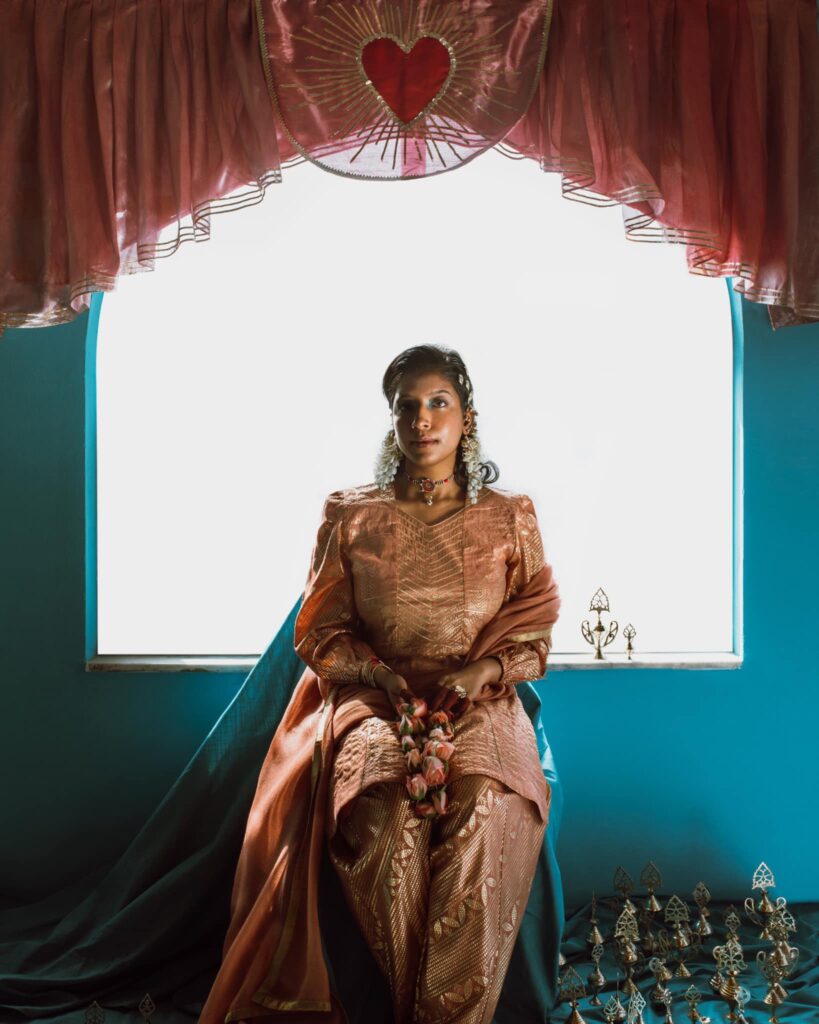
Despite dressing up and fashion being such a central part of economic and social activity in the desi society, good clothing options for larger-sized bodies are limited. Frustrated with this lack of representation, 24-year-old marketing professional Sarah Raseen Khan decided to advocate for being happy in whatever size you are in through experimenting with her fashion choices and sharing it publicly on her Instagram feed. “I felt that by speaking about it, I could be the person I needed when I was younger. I could help change the narrative about “the ideal body type” and push for representation of bigger bodies in all forms of media,” shared Khan who can be seen rocking everything from a halter to a sari on her social feed.
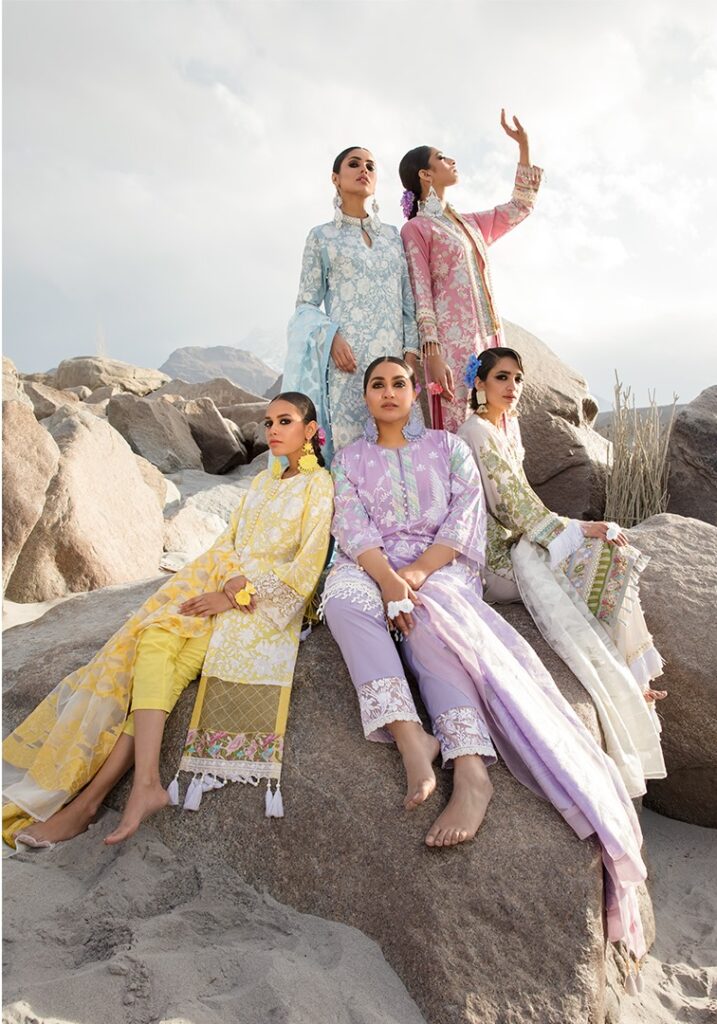
After years of designers and commercial brands sidelining bigger bodies in their campaigns and collections, brands like Khaddi and Generation are also leading the way in body acceptance. Not only have they centered “normal” bodies in their imagery and shoots, these brands are also trying to redefine what it means to create fashion that is inclusive and accessible to everyone. In a Scroll report, Generation creative director Khadija Rehman says it’s “tragic” that plus-sized women are not enabled to have fun with their clothes. Plus-sized beauties of Pakistan, she said, “just need to develop more swagger in their walk and not worry so much what others would think.”
Unhealthy body expectations
Beyond fashion and clothing, comments about size and weight are commonplace in desi culture. Unsolicited advice on gaining/losing weight, invasive questions about body size and tying women’s worth to a number on the scale is far more common than we like to admit.
Malik shares that she often gets bombarded with a lot of advice on how she needs to lose weight or how certain clothing styles are not meant for her body type. “It’s kind of crazy just how angry people get when fat women are existing peacefully and without hiding themselves, they get really amped up about it,” she said. Khan adds that people also get uncomfortable when she portrays comfort with her body while being active. She thinks “it’s either because a considerable amount of people still believe that I can’t be the size I am and lead a healthy lifestyle, or they feel uncomfortable seeing a bigger body in activewear.”
Unattainable body standards in a culture where everything from celebration to mourning is centered around food can also lead to unhealthy relationships with eating from a young age. Coupled with a lack of awareness about eating disorders and mental health at large, this leaves people, especially teenagers extremely vulnerable to physical and mental health complications.
The thinner, the better?
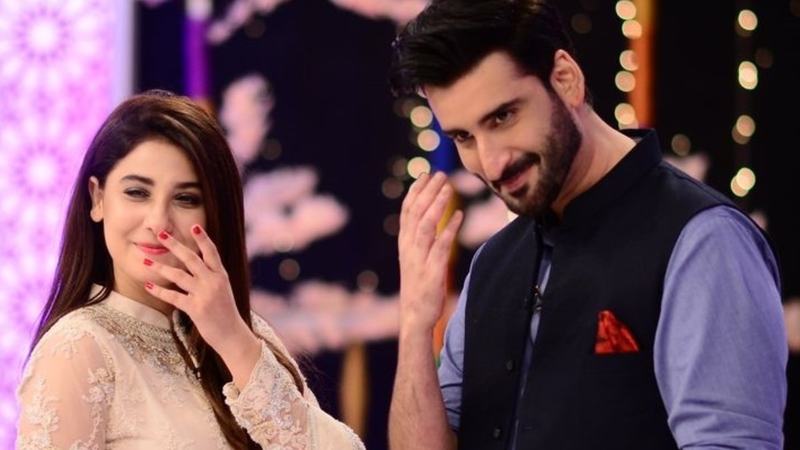
Only last year, newlywed celebrity couple Aagha Ali and Hina Altaf appeared on the popular morning show Good Morning Pakistan and shared what conditions they had laid upon each other before getting married. “Before marriage, Aagha showed me a picture of someone, who wasn’t me and said if you become this fat…” shared Hina. “No ji,” protested Aagha. “I said I don’t want anything in this world, only one promise, only one. Please don’t get fat, for god’s sake.”
While the clip went viral, the mentality behind these comments is the result of years of conditioning and synonymising being thin with being happy and desirable. Weight is a central concern when it comes to marriage, especially that of women. Young women are often told to watch their weights from an early age in order to brighten their prospects in the matrimonial marketplace. The media has not been of much help here either. Years of rewarding thinness on screen with success, beautiful partners and flamboyant lifestyles has left little space for other ideals to exist.
Embracing body positivity and opting for healthier narratives around our bodies
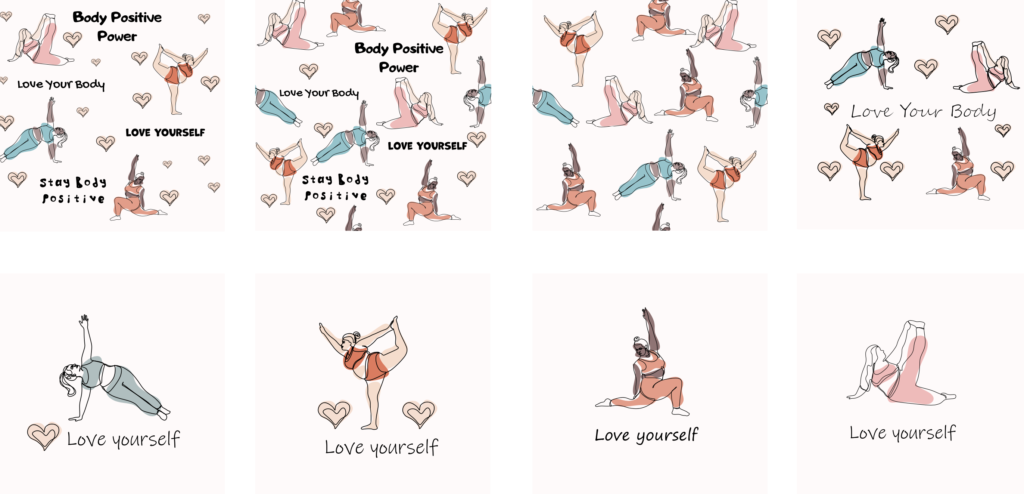
There seems to be a lot of confusion about the term body positivity and what it entails. At its simplest, body positivity is the idea that people should feel happy with and proud of their body, whatever shape or size it is. Globally, body positivity is a social movement that advocates for the celebration and self-love of visibly fat bodies. The movement has its roots in the fat acceptance movement of the late 1960s, which focused on ending the culture of fat-shaming and discrimination against people based upon their size or body weight.
The term “body positive” was coined in 1996 following founder Connie Sobczak’s experience with eating disorders in her teen years. The body positivity movement in its current form took off around 2012, manifesting itself with hashtags and selfies online, but a lot of people still remain confused about what it entails. According to Khan, one way of being body positive or an ally is to recognize your inner bias against bigger bodies. Asking yourself if you think differently or less of someone just because of the way they look is a good way of keeping yourself in check, she advises. Malik says it can be something as simple as hearing people out. Allowing people to be different, listening to them and validating their feelings can go a long way, she says.
A guide to body positivity
If you are still confused, we have broken down a few ways in which you can practise and support body positivity in your day-to-day-lives:
- Recognize that we all come in different shapes and sizes
- Practise positive self-talk, to yourself and others
- Switch from fear to gratitude
- Set health-related goals instead of size-related ones
- Understand that whatever someone else’s body looks like, is NONE OF YOUR BUSINESS
Healthy ways of talking about body and appearances
Language matters. Here are a few suggestions for talking about health and appearances in a more positive way. Consider reframing your comments the next time you feel tempted to comment on someone’s body or weight.
| Don’ts | Do’s |
| “You look so curvy” | “You look so happy. Hope you continue to have days like these” |
| “Have you lost weight? You look great!’ | “You take such great care of yourself. I hope to prioritize myself like that too” |
| “How do you stay so thin while eating like that” | “I am so inspired by how much you value staying healthy and active” |
| “I wish I could eat as much as I want and stay thin” | “I am so grateful to have a healthy body and to be able to eat anything that I wannt” |
Sarah Munir is a digital journalist with a focus on the intersection of technology and media. She has worked with several publications including Dawn, Facebook, Forbes, and most recently Twitter. You can reach her @SarahMunir1.